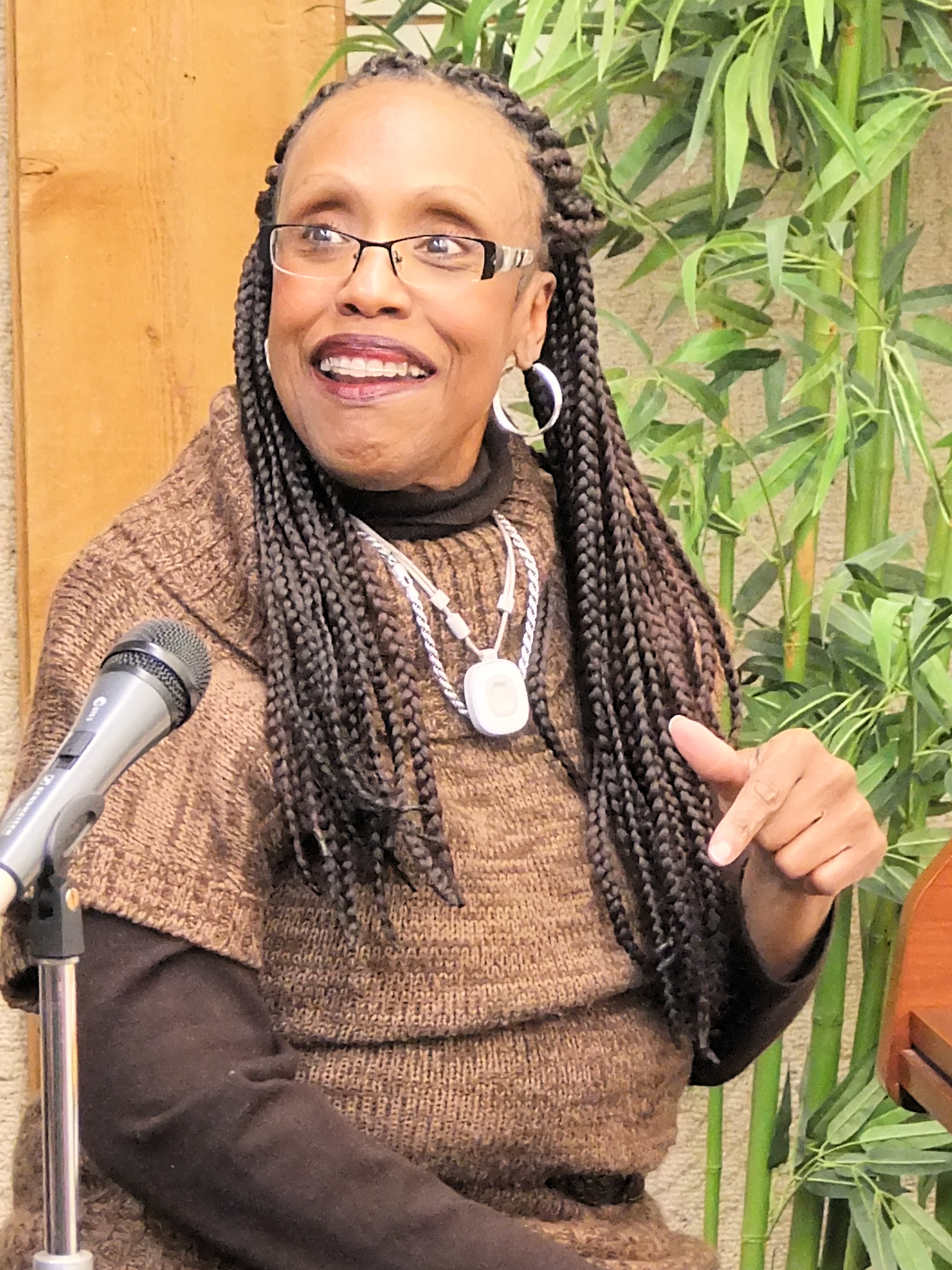When Lisa Shorter walked into a keyboard class for adult beginners last year, it took all her courage and patience. After all, she was the only student who’d be forced to play using only one hand.
One year later, she isn’t comfortable playing a song in front of her classmates. She does it anyway.
“I’m going to try, try, try,” Shorter, 58, said.
It’s an attitude that has served her well throughout life.
The youngest of seven children, Shorter grew up in Wichita, attended Kapaun Mount Carmel High School and studied at Wichita State University. By age 26, she was married and working as a receptionist in California. One day, when her husband was at work, she felt “odd” and decided to lie down. When the feeling persisted, she went to a neighbor, who called her sister, Martha, who took her to the hospital.
Shorter’s next memory is of waking up in the hospital and Martha telling her that she had suffered a stroke. Her mother had flown in from Kansas. Shorter was disoriented, struggling physically and unable to recognize some people.
“That day I was lost,” Shorter recalled.
In the aftermath of the stroke, she needed help in the bathroom and brushing her teeth. She couldn’t eat spaghetti or peel potatoes, she said.
“I was like, ‘Help me, Lord.”
Her marriage didn’t survive the ordeal. Shorter moved back to Wichita, where most of her family lived. She wrestled with anger and bitterness.
She said “a long, long time” went by before she began to feel like herself. The faith she grew up with aided in her adjustment. She relates to Biblical figures such as Paul, who thrice asked God to remove a thorn in his flesh.
“I’m better now,” she said. “Yesterday, I don’t know. Tomorrow is not promised to me. So today is a good day.”
An early riser, Shorter works 7 a.m. to noon cleaning houses. She lives on her own and drives a car. She takes Zumba classes twice a week and now eats spaghetti with gusto, she said, with a grin. She loves to cook and watch sports on TV.
Last year, Shorter decided to make her long-held dream of playing piano a reality. She enrolled in the Goofin’ Around Keyboard Class at Garten’s Music, which includes the loan of an instrument in each student’s home for the duration of the 10-week class.
Shorter later bought a Lowrey Odyssey home organ; practicing on it is among her top priorities.
“I can’t lose focus on that,” she said.
The organ has a one-finger chord feature that allows the musician to play one key while the instrument adds more tones to make an entire chord – a minimum of three notes played simultaneously – resulting in a fuller sound. Most students use one finger of the left hand to play chords as they play melodies with the right hand. Shorter’s organ consists of two keyboards, one stacked above the other. That allows her to play the melody with her fingers on the top keyboard and chords with her thumb on the bottom one.
“I like the classicals and jazz, and rock ’n’ roll sometimes, and gospels,” she said. “The old-time singers, I like. You get the groove and I can rock it!”
She acknowledged that it was intimidating to join students who use both hands to make music, and sometimes feels frustrated.
“It’s like, hand, why don’t you want to do something?” she said.
However, she continues to take lessons and is working her way through more advanced classes.
Shorter’s goal is to someday help provide music during church services.
“But I’m scared to death. And I don’t know why,” she said. “The people, I know them. But at church it’s a lot of people.”
She has played the piano at her church – but never during a service. She plays only when the building is mostly empty.
“Me and maintenance (workers), that’s it!” she said.
Shorter occasionally plays a song for her keyboard class. She is considering playing for the annual Christmas lunch, when all the classes come together and some students provide music.
“If I fail,” she said, “at least I tried.”
Contact Amy Houston at
amy_houston76@yahoo.com












